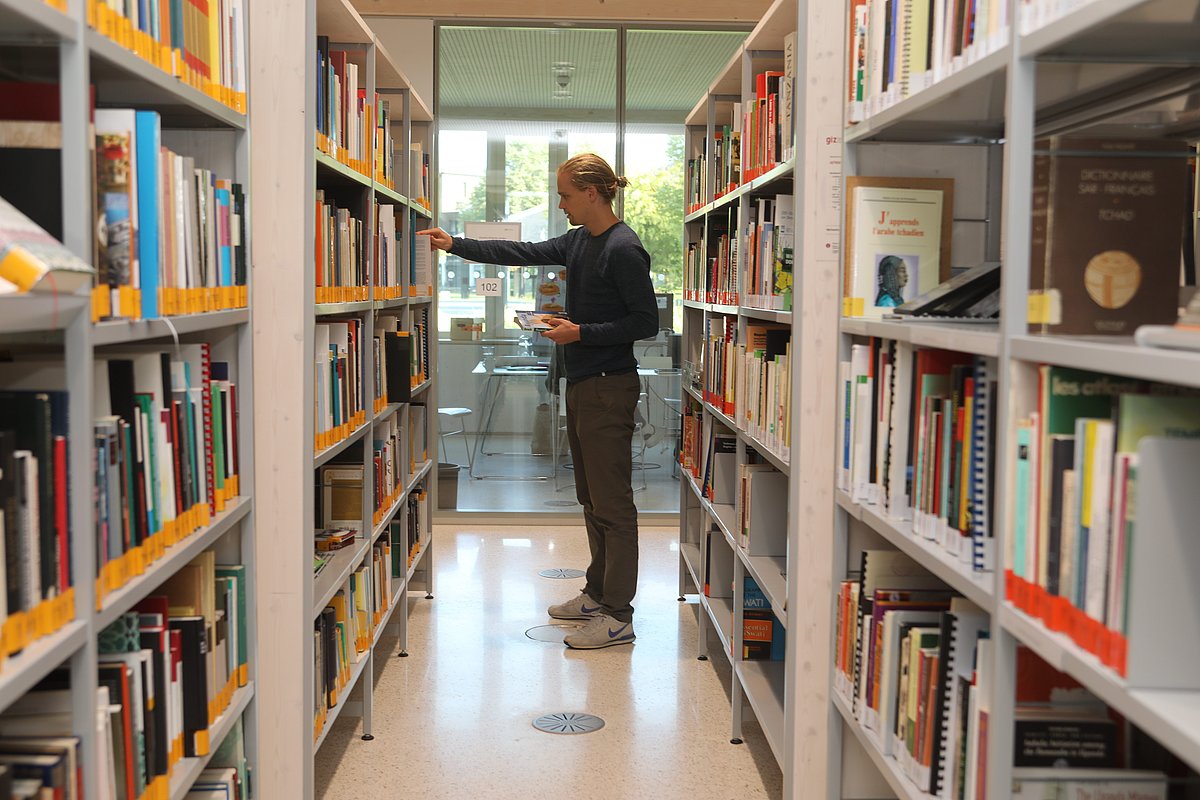Sharing experiences, safeguarding quality
Our understanding of quality
Quality plays a pivotal role in ensuring the sustainability of our work. Our understanding of quality, based on international standards and the Capacity WORKS management model, safeguards the quality of the services we provide. This is supplemented by monitoring and evaluation. Our work is also subjected to regular external audits.
Quality means achieving positive results. Our understanding of quality is also based on the following factors:
- sustainability-based values,
- economical use of resources,
- efficient steering, and
- compliance with rules and regulations.
Behind each of these factors are procedures, instruments and processes that are geared to specific needs. The Quality House model is GIZ’s internal frame of reference for our understanding of quality.
Decentralised quality management
In our projects, we define quality as the successful achievement of intended results. Our quality management and the underlying procedures and requirements are implemented on a decentralised basis, and responsibility for them lies with the relevant organisational units. The main actors are the officers responsible for commissions and the officers responsible for implementation, with their specialist staff and managers. They carry a particular responsibility for the quality of our work. Quality management is a leadership task. Nonetheless, all staff obviously contribute to quality at GIZ through their day-to-day work.
We are constantly striving to improve our quality with the help of regular surveys among staff, external stakeholders and commissioning parties. Corporate strategic evaluations of relevant topics such as gender and cofinancing arrangements, or even explicitly of quality management in our projects, are another instrument for safeguarding and enhancing the quality of our work.
External quality controls
GIZ also undergoes an annual external quality control audit by the German Federal Ministry for Economic Cooperation and Development (BMZ), which randomly selects 50 GIZ projects and then uses specific audit criteria to conduct quality checks. Special emphasis is placed on compliance with BMZ regulations on planning and implementation.
The audit criteria are:
- compliance with development policy requirements
- objectives system
- offers and reporting
- plausibility of the use of instruments, and
- value for money.
Quality control by BMZ is important, as it allows auditors from outside the company to evaluate our projects from a different vantage point. The seventh external quality control audit took place in 2019. It focused on the impact of the Joint Procedural Reform on project quality. GIZ and BMZ analyse the results and discuss any necessary steps. This ensures transparency and a joint understanding of our cooperation arrangements.

Learning and innovation
We want to be successful, effective and cost-efficient in the long term, so we regularly re-examine our actions and decisions. This enables us to learn from our own experiences – including the less successful ones. We have made this process an integral part of the ‘learning and innovation’ success factor in Capacity WORKS, the tool we use to manage and implement our commissions.
At the end of 2017, in the wake of digital change and the increasing complexity of the working world, we launched the strategic project Cooperation and Leadership, which also contributes to learning at GIZ. As part of this, four principles were developed for cooperation at GIZ, one of which is ‘Experiment and Innovate’. This means having the courage to try and to fail. We want to learn from our mistakes as early on as possible in processes so that there is still time to change course.
Supporting teams and organisational units around the world with experimenting and learning and while doing so discovering good approaches for the company as a whole is a key goal of the Cooperation and Leadership project. Teams apply agile methods such as scrum and rapid prototyping, thereby practising how to deal with mistakes and organisational learning. They do so by breaking their projects down into many small steps, allowing time for reflection and learning at an early stage. In the sprint retrospectives and sprint reviews, members of project teams evaluate the results achieved to date and reflect on cooperation as a team in order to work together more efficiently and productively in future. These processes are highly structured and are reflected upon and refined regularly.
The training courses offered by the Academy for International Cooperation (AIZ) also support GIZ staff and managers in their learning. The courses on offer are currently being refined in line with the Cooperation and Leadership principles, especially ‘Experiment and Innovate’.
Yet methods are not everything. At least as important are an open, respectful and constructive attitude on the part of staff and a culture that views mistakes not as failure, but as a consequence of courageous decisions and as an opportunity to develop and grow. In a world characterised by increasing complexity and rapid acceleration, it is sometimes inevitable that approaches that worked previously now no longer do so. The important thing is to acknowledge this and change course quickly.
In a specialist organisation such as GIZ, this requires a change in corporate culture. While expert knowledge was a key to successful projects in the past, the emphasis is now much more on knowledge sharing. Pooling know-how as a matter of course, transparent working practices and mutual assistance to overcome obstacles will characterise our corporate culture to an even greater extent in future. By creating space for discussing experiences, promoting networking and shaping the way we share knowledge, we will facilitate experimentation and learning within the company and in our work with partner organisations.